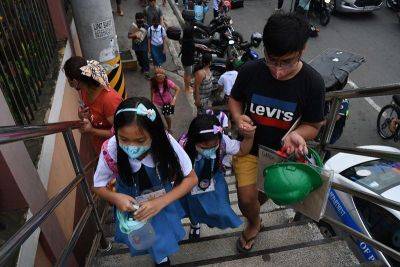Social media giants' 'fake news' policies failed to prevent disinformation during 2022 elections — study
MANILA, Philippines — Social media platforms' overemphasis on weeding out false content to counter disinformation failed to combat the coordinated spread of false and twisted narratives in favor of President Ferdinand Marcos Jr. during the 2022 elections, a new study on disinformation has found.
A new report by digital rights organization DigitalReach found that the online disinformation that helped catapult Marcos to the presidency — which had been "years in the making" —- was widely disseminated by a network of trolls and credentialed figures that platforms could not stop from reposting dubious content that had already been taken down.
Even as they partnered with the Commission on Elections, social media platforms still "overlooked the dynamics" of how bad actors "went beyond efforts to misinform and disinform Filipino voters … to sow distrust and sap confidence in the electoral system and voting process at large," according to the study.
Gaps in social media platforms' efforts to stem the spread of disinformation and to align with how disinformation campaigns are done through influence operations "played a crucial role in election manipulation" in 2022, the authors of the study wrote.
"Mitigation efforts by social media platforms during the election were superficial. They failed to deeply consider the dynamics of the situation—namely how platforms could be weaponized during the election," the study stated.
The study, titled "Operating the Propaganda Machine: Social Media Accountability in the 2022 Philippine Election," documented how pro-Marcos accounts took advantage of the ease with which content can be reposted across platforms as well as social media giants' limited policies on political ads.
Social media platforms' had announced prior to the elections that they would remove content deemed disinformation and misinformation. But "the intensity of information disorders and their widespread dissemination via coordinated networks" showed this approach was "largely ineffective," the study said.
"Typically, information disorders in the Philippines are systematically disseminated via networks where different accounts amplify each other's messages, and where the







